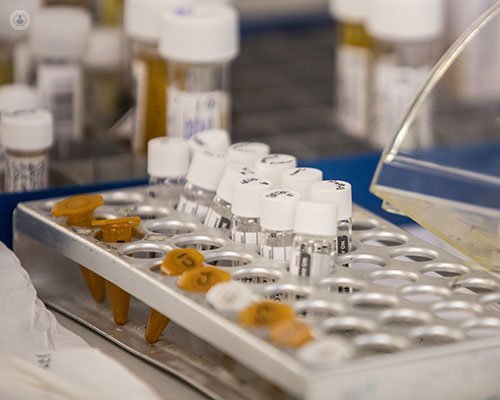When to see an allergy and immunology specialist
Autore:The diagnosis of immunological diseases, such as allergies, is mainly through blood tests and a combination of specialist knowledge. This article explains when to see an allergy and immunology specialist.

What does an allergist-immunologist treat?
An allergy and immunology specialist is trained to diagnose, manage and treat immune system disorders such as allergies, asthma, hypersensitivity reactions, and immunodeficiency and autoimmune diseases.
Roles and responsibilities include:
- Control of the immune system.
- Primary and secondary immunodeficiency: Where the body is unable to produce enough antibodies to fight bacteria, which can lead to diseases.
- Autoimmune diseases: Where the immune system attacks healthy cells in the body by mistake.
- Reproductive immunology: The study and treatment of women with repeated spontaneous miscarriages.
- Ocular immunology: Inflammatory diseases of the eye.
- Digestive immunology: Diagnosis of coeliac disease, inflammatory bowel disease, etc.
- Immunology of transplants: Monitoring and counselling in cases of rejection.
- Critically ill immunology: Risk of death after sepsis, a life-threatening complication of an infection.
- Indication of prophylactic and therapeutic vaccines: For genital papillomavirus infection (HPV).
- Counselling on home therapy of immunoglobulins: A blood-based treatment
- Psychoneuroimmunology: Immunology associated with chronic fatigue.
- Examinations of cases of immunologically based diseases.
When is it necessary to visit a clinical allergist and immunologist?
It is necessary to see an allergy and immunology specialist when a patient has many infections. These can include:
- unresolved inflammatory problems
- women with recurrent miscarriages or infertility
- patients with transplants
- patients undergoing medical procedures through which an immunology problem may be expected
Healthy patients who want to know their immunocompetence status can also consult with an allergist-immunologist.
Treatment of immune disorders by an immunologist specialist
The treatment of immune disorders depends on the type of the problem detected, such as:
- Immunodeficiency or recurrent infections - Mucosal vaccines or therapy with intravenous or subcutaneous defences (gamma globulins) may be used, in addition to suitable antimicrobial treatment.
- Patients with inflammatory or autoimmune diseases - Patients may require anti-inflammatory, immunosuppressive (corticoid, mycophenolate, tacrolimus) or immunomodulatory (gamma globulin, biological therapy) therapy.
- Women with recurrent miscarriages - Therapy with corticosteroids, gamma globulins, or other forms of immune modulation may be used to increase the chance of reproductive success.


